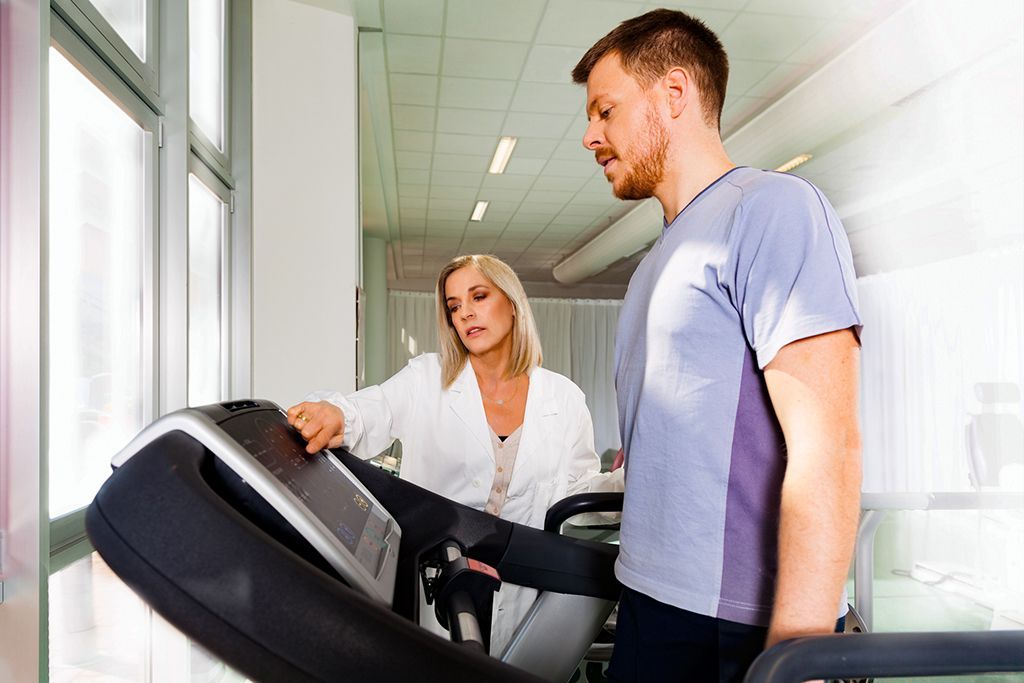Cardiopulmonary Stress Test

Overview: During a cardiopulmonary stress test your doctor will measure how well your heart and lungs are working during exercise.
Cardiopulmonary stress tests allow doctors to measure how well your heart and lungs are working during exercise. During these tests, an EKG monitors your heart rhythm and rate, and your oxygen use is monitored. This test can determine aerobic capacity, severity of shortness of breath (dyspnea or SOB), heart rate, lung function, and heart failure.
More Information
Your doctor will provide you with specific instructions as to how to prepare. You may be asked to not eat, drink, or smoke for a few hours before the stress test. They may ask you to avoid caffeine before your test. Some over-the-counter and prescription drugs also contain caffeine, so be sure to check the labels before you take them. Even decaffeinated coffee and other beverages contain small amounts of caffeine. Your doctor will tell you if you should take your regular medications before the test. Do not exercise for the two hours before the test. Be sure to wear comfortable/exercise clothing and walking shoes to the test.
Before the test, a technician will place EKG electrodes onto your chest and extremities. You will wear a blood pressure cuff on your arm throughout the test. You may be asked to breathe into a tube to determine how well you are able to breathe during exercise. A nose clip may be placed on your nose to make sure that you are only breathing with your mouth. During the test, you will have to exercise on a stationary bike or treadmill. The speed of the treadmill or bike will be slow at first and will increase gradually. Your heart's electrical activity and your blood pressure will be monitored throughout the test. You will be asked to continue exercising until your heart rate has reached a certain threshold, all the necessary measurements/data have been collected, or if you have developed symptoms like chest pain, shortness of breath, dizziness/fatigue, or an abnormal heart rhythm. You can stop the test at any time if you are not comfortable continuing. Your blood pressure and heart's activity will continue to be monitored for about 15 minutes after the test. After that, you can resume your normal activities unless your doctor tells you not to.
There are usually no severe risks associated with the typical stress test. Sometimes the exercise or the medication can cause chest pain, dizziness, or nausea. You will be monitored during the test in case any complication happens so that you can receive prompt treatment.
Milani, R. V., Lavie, C. J., Mehra, M. R., & Ventura, H. O. (2006, December 1). Understanding the Basics of Cardiopulmonary Exercise Testing. Mayo Clinic Proceedings, 81(12), 1603-1611. https://doi.org/10.4065/81.12.1603
UnityPoint Clinic Cardiology. (2017). Cardiopulmonary Stress Test (CPX). UPC_Cardiopulmonary Stress Test 2017r. Retrieved October 27, 2020, from https://www.unitypoint.org/cedarrapids/filesimages/Physician%20and%20Clinics/Cardiology/2017%20Patient%20Ed/UPC_Cardiopulmonary%20Stress%20Test%202017r.pdf
HCMA 6/2021


 Translate
Translate